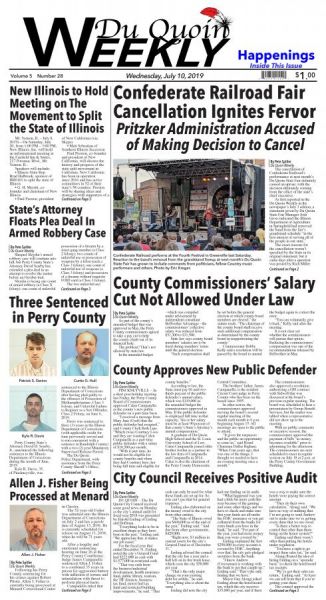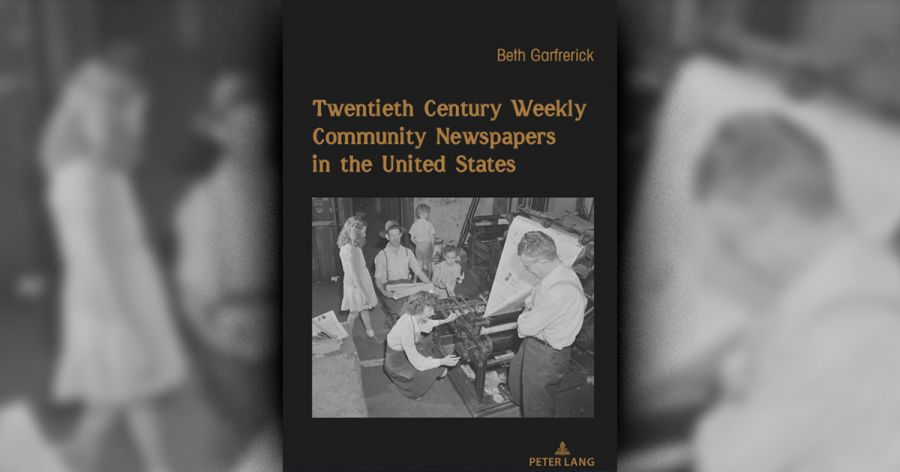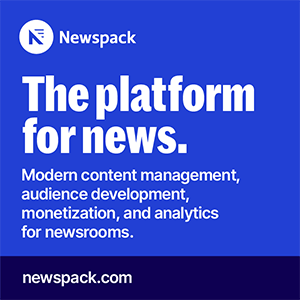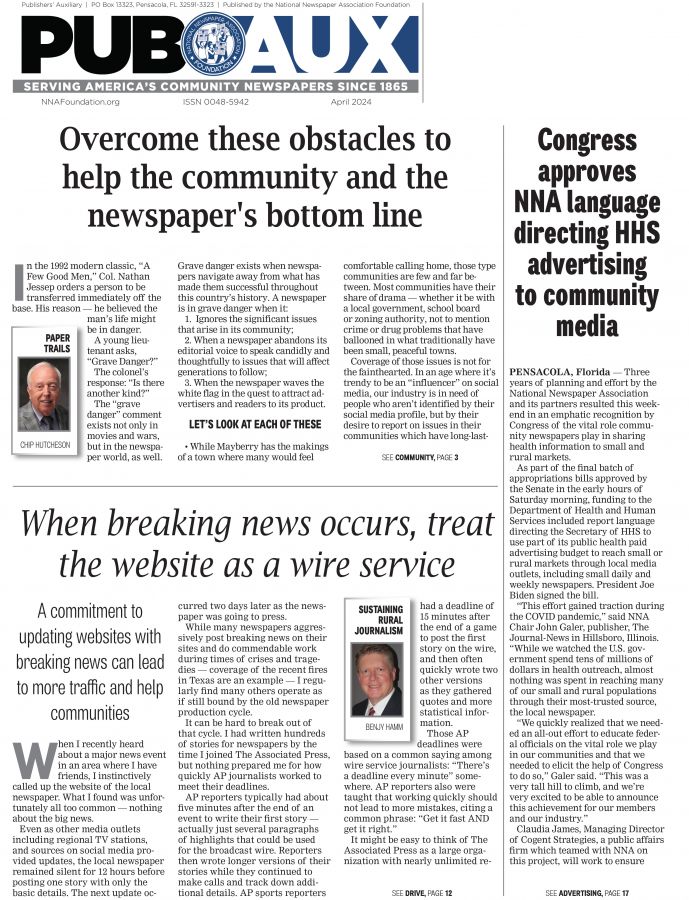Du Quoin (Illinois) Weekly’s coverage of new Democratic governor picked up nationally
Jackie Spinner
Aug 1, 2019

Just days before the 4th of July holiday, the DuQuoin Weekly in southern Illinois got a tip that the country music band, Confederate Railroad, would no longer be playing at the DuQuoin State Fair in August.
At first, it appeared like a typical scheduling conflict which wouldn’t have been much of a story. But earlier in June, a journalist in the Illinois capital had asked readers in his widely read political blog whether a band with “confederate” in its name should be playing at a state-owned facility. The governor’s office apparently took note.
The Weekly broke the story in its July 3 print edition, confirming that state officials booted the band from the fair lineup because of its name.
The Weekly — and its sister paper, the Pinckneyville (Illinois) Press — didn’t share the story digitally. The story did not run on either paper’s Facebook page or website.
“It didn’t take long for us to learn we were competing with ourselves when we throw stories up on Facebook or on the website,” said Jeff Egbert, publisher and co-owner of the Weekly and Press newspapers, which have a minimal web presence.
But that didn’t stop the story from going viral. Readers shared pictures of the print story on Twitter, and local TV station WSIL covered the cancellation, crediting the Weekly for the exclusive. As the story started taking off in southern Illinois, the AP’s reporter in Springfield wrote an account, with ABC, Fox News, Billboard and The Washington Post eventually picking it up.
It’s a reminder that for community newspapers, word-of-mouth still goes a long way. “We’ve doubled down on print because print works,” Egbert said.
Small papers like the Weekly and Press are in a tough spot when it comes to promoting their content online and on social media. A bigger paper might choose to publish some of its content in digital formats, hoping to drive readers to their print edition or other digital products where they can make money. But for smaller papers (like the Weekly's 1,500 circulation and small staff), that is more difficult.
“I may only have two or three stories,” Egbert said. “I have a duty to my staff to keep them employed and a duty to my advertisers. It doesn’t work in a market our size.”
Confederate Railroad, which has played at the southern Illinois state fair before, is a Georgia-based country rock band with hits like “Jesus and Mama” and “Trashy Women.” The band’s logo features a steam locomotive flying Confederate flags.
In defending his administration’s decision to cancel the band, Gov. J.B. Pritzker told reporters that the confederate flag remains a symbol “of racists, of white nationalists, of the alt-right. I cannot think that the state of Illinois should be sponsoring something that is amplifying that symbol. That is why we took the action we did.”
The story played big nationally because it had the classic elements of a liberal versus conservative clash, even without the Illinois particulars: a newly elected Democratic governor from Chicago who just raised taxes goes after a band set to play in conservative southern Illinois where voters (and their politicians) consistently feel overlooked — if not downright stiffed — by the more powerful lawmakers to the populous north. (Conservative Illinois lawmakers have twice now produced a resolution calling on Congress to declare Chicago the 51st state as part of a downstate movement to separate the nation’s third largest city from the rest of Illinois.)
A band member called the state’s decision “disappointing” in a statement that also thanked fans for their outpouring of support. After its state fair gig was canceled, a Harley-Davidson dealership in nearby Marion, Illinois, booked the band for a private concert.
By the time the story went viral nationally, the Weekly was no longer being credited. If its small digital footprint has a downside, that might be it, although it’s probably safe to assume that the Weekly would not have picked up new subscribers even if it were credited in a national publication.
Small papers might want to consider using Instagram and Twitter to tease their content, without giving away the full story. Social media is crucially important for promoting brands, particularly to young readers.
A 2018 Pew Research survey found that among people ages 18 to 29, social media was the most popular way to get the news, with 36% saying they “often” get news that way. (TV is still the primary way Americans over 50 get their news, which is why it was important that WSIL-TV credited the Weekly for the paper’s initial story.)
“It’s been a very rapidly evolving story,” Egbert said of the Confederate Railroad controversy, which the paper has continued to cover.
But don’t look online for the updates.
Jackie Spinner is the editor of Gateway Journalism Review (gatewayjr.org) and an associate professor at Columbia College Chicago. Send story tips to jspinner@colum.edu.










